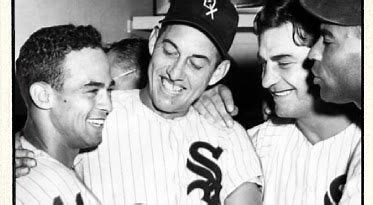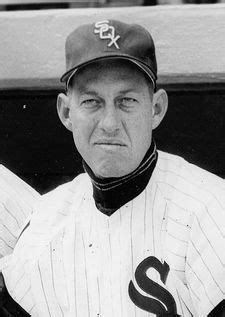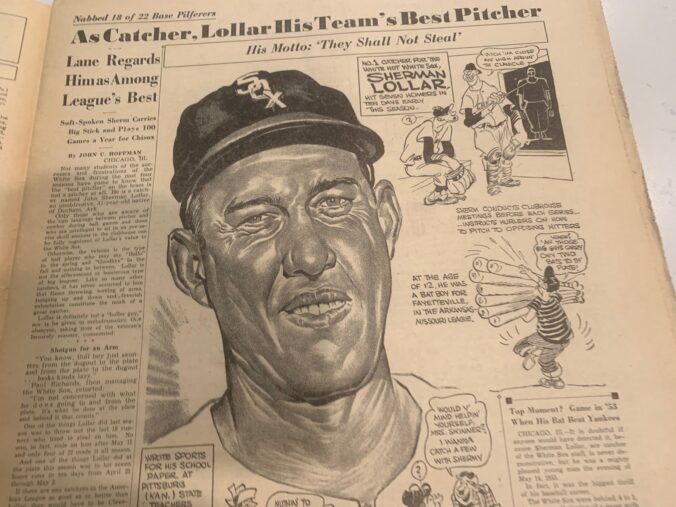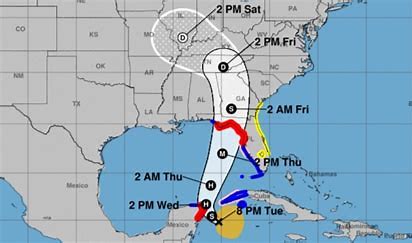Continued from Post #2615
After the 1959 AL Pennant, the White Sox were favored by many to return to the World Series. As Roy Terrell pointed out in the April 11, 1960, edition of Sports Illustrated:
“The White Sox, a gang of quick artists a year ago, are equally quick and artistic and noticeably more muscular. Minnie Minoso has returned, Ted Kluszewski will be available from the beginning, Gene Freese will drive in runs, Billy Pierce no longer has an aching back. Now Roy Sievers, the big slugger from the Senators, has joined the act too. Added to the defensive genius of Sherm Lollar, Fox, Aparicio, and Landis and the pitching skill of Early Wynn and Bob Shaw, this should be enough again to make the Sox again the strongest ball club in the American League.”
The 1960 Major League Baseball Annual displayed a picture of Sherm with these author comments:
“Loudest noise in the Sox ’59 lineup was made by silent, SHERMAN LOLLAR, the workmanlike catcher. Sherm was high in home runs (22) and RBIs (84) as he registered a not-too-flashy .265 average. Sherm’s booming bat won many late-inning battles, and his smart receiving made the mound staff a bit more effective. Sherm, born in Durham, Ark., started in ’46 as an Indians and went to the Yankees in ’47. There were three seasons past with the old St. Louis Browns before the Pale Hose traded for him in ’52. Sherm’s best of 14 seasons was ’56 when he hit .293.”
The June 15, 1957, Saturday Evening Post – 15 cents, had a really interesting multi-page article on Lollar written by William (Red) Gleason. It starts with a dugout photo of Sherm with mask and glove in hand followed by a candid admission by Sherm. ” I wouldn’t be as good a hitter as Yogi if I were hitting in a phone booth. I’m a great admirer of his.” The title of Red’s piece was: “Is Lollar Better Than Berra?” Just underneath an explanation in bold print follows: “Some experts believe that the White Sox star has been overshadowed by Yogi Berra so long that he’s probably the most underestimated catcher in baseball.”
The body of the article reads:
“It is the fate of some illustrious men to spend a career in the shadow of a contemporary. Adlai Stevenson had his Dwight Eisenhower. Lou Gehrig had his Babe Ruth. Bob Hope had his Bing Crosby. And Sherman Lollar had his Yogi Berra.”
“Sherman Lollar, a reflective 32-year-old, whose father was one of very few Republicans in Fayetteville, Arkansas, understands from experience the frustrating thoughts that must occasionally nag at those other men. If it weren’t for Berra of the New York Yankees, Lollar of the Chicago White Sox would be the number one catcher in the American League.”
“Last season was the best Lollar has had with the bat since he came to the Major Leagues with Cleveland in 1946. Sherman hit .293, drove in 75 runs, and hit 11 homers, a most respectable set of figures. Berra, however, hit .298, drove in 105 runs, and hit 30 homers.”
“This is the way it is always been for Lollar when fans speak of American League catchers. The discussion usually begins and ends with Berra. Yogi’s domination of the League’s Mask, Chest Protector, and Shin Guard Society has been so complete that Lollar’s accomplishments are overlooked.”
“Only his closest friends seem aware that Lollar has been named to four American League All-Star teams. Here again, Berra has shunted the Chicago catcher into a dark corner of the dugout. Three times – 1950, ’54, and ’55 – Lollar went to play the All-Star game just for the trip. He didn’t play. Last year, at Washington, Casey Stengel finally gave Sherman an opportunity. He responded with one hit in two tries against the National League team.”
“Almost nobody remembers that he played in a World Series and compiled a .750 batting average. To be sure, White Sox players are seldom thought of in connection with the Series – the team hasn’t been in one since 1919. However, Lollar sneaked in, back in 1947, with the organization that has made the World Series a hobby, the Yankees. Lollar got into only two games and batted only four times, but he made three hits.”
I refer to a Chicago Baseball Museum web article by John McMurray who quotes sportswriter Dan Daniel, known as “the dean of American baseball writers”: “In Game Three, a secondary standout was Sherman Lollar, who started the game as a surprise entry. [Manager Bucky] Harris benched Berra in favor of the right-handed Lollar against the southpaw [Joe] Hatten. Lollar got a single which became a run in the third, and in the fourth drove in a run with a double.”
Dan Daniel followed up in August 1948, observing, “Sherman Lollar, right-handed hitting catcher, is another who has possibly had his last big opportunity with the Bombers. Now that Yogi Berra is available again, Gus Niarhos will handle all the receiving duties against left-handed pitching.” Berra stayed with the Yankees, while Lollar eventually moved on again to the St. Louis Browns. There was no place for him behind the plate with the Yankees, who justifiably soon favored Berra.
Lollar struggled for years to find a starting role, while Berra found a permanent home in Yankee Stadium. Before the two met, according to writer Bill Roeder in this same McMurray article, “The Cleveland complaint was that Lollar displayed insufficient dash and spirit. He had the ability all right, but no inclination to exploit it. Within a month, he was homesick for Baltimore, and [Cleveland manager Lou] Boudreau sent him back. Now Sherman belongs to the Yankees, and they hope he will react favorably to the fresh start.” This is when the Berra roadblock began.
“Berra earns something like $58,000 a year, and is one of the best-known athletes of our time. Lollar, whose pay is around $20,000 is little publicized. Yet there are insiders who rate Lollar as a better catcher than the Yankees’ Yogi man. They will readily concede that Lollar does not compare with Berra as a hitter. They won’t argue with the record book. Going into this season, Berra’s lifetime achievements include a ,294 batting average, 1,003 runs batted in, and 238 runs. Lollar’s figures were a .264 average, 451 RBIs, and 86 homers. But the Lollar adherents maintain that while Yogi has the edge at the plate, Sherman is clearly superior behind it.”
“Billy Pierce, the White Sox’ great left-handed pitcher, says of his battery mate, ‘sure Yogi hits better, but Sherm is better defensively. He helps us pitchers on every pitch, in every game.'”
“Chuck Comiskey, co-owner and vice president of the White Sox is another who believes that Lollar is a better receiver than Berra. ‘You have to rate Berra first for all around ability because of his power,’ Comiskey says, ‘but on defense, you would have to take Lollar. For catching ability, I would rank Lollar first, Jim Hagen of Cleveland second, and Berra third.”
The last point – the size of Comiskey Park’s playing field – often is raised by Lollar’s advocates. They argue that Berra has a decided advantage in playing seventy-seven games in Yankee Stadium, a park tailored for left-handed pull hitters like Yogi, while Lollar, who swings from the right side, plays half the schedule in a vast enclosure that is a pitcher’s paradise.”
The extensive Sports Illustrated article continues in great detail, but I’ve chose to include some pertinent excerpts. Manager Al Lopez mentions that “our pitchers have great confidence in Lollar.” Lopez was a catcher himself, overshadowed in a similar manner by legends like Gabby Hartnett and Ernie Lombardi.
“One of Lollar’s greatest boosters is Ray Schalk, the old White Sox catcher, who is a member of the baseball Hall of Fame, currently coaching baseball at Purdue, declares ‘Lollar does everything well that you can do back there. And when you talk about his batting average, don’t forget that he is playing in a ballpark that was built by a real baseball man, the first Charles Comiskey. You don’t think Berra or Campanella or any of those guys would’ve hit .300 very often playing at Comiskey Park, do you? I sure don’t”
I certainly don’t want to take away from Ray Schalk’s Hall of Fame credibility, just add to Sherm’s case. Lollar had better overall stats. They both played for 18-years and were separated statistically by only 10 games – 1,752 for Lollar and 1,762 for Schalk. Schalk averaged .253, while Lollar was at .262. Schalk only had 11 homers but 177 stolen bases. Lollar was painfully slow with only 20 stolen bases, but he had 155 home runs. Both were good glove men, with Lollar’s .992 slightly better than Schalk’s .981. A classic case of speed vs. power, but speed apparently got Schalk in the Hall of Fame. Just for the record, Berra had 30 career stolen bases. Also, Lollar may have been slower, but his career on-base percentage was higher than Berra’s (.357 versus .348).
“Berra is celebrated for malapropisms. Loller is seldom quoted. An unobtrusive workman, he is obscured on his own club by crowd-pleasers such as Nellie Fox, Minnie Minoso, Jim Rivera, and Luis Aparicio. The Sox catcher has been described as one of those guys who say ‘hello’ in the spring and ‘goodbye’ in the fall. Obviously, nobody is that quiet or uncomplicated. John Sherman Lollar – to give his full name – is not a baseball recluse. It doesn’t take long to discover that he is intelligent. His teammates elected him their player representative after Ferris Fain was traded late in 1954. In this capacity, Sherman has represented the Sox in player negotiations with the club owners on such matters as the baseball pension plan.
History might be different if Lollar and Yogi Berra had initially competed at a different ballpark than Yankee Stadium. In parts of two seasons with New York, Lollar saw action in only 33 games. Berra played 18 seasons with the Yankees and played in 2,052 games, all with the same team. He spent the next year as their manager, then joined the New York Mets in 1965 as coach, playing in another 68 games for a grand total of 2,120. He was at bat in 7,555 games, compared with Lollar’s 5,351 trips to the plate in 1,752 games. These stats from baseball-almanac.com.
What if it had gone head-to-head at Comiskey Park, instead? And what happened to the high expectations for the 1960 White Sox team?
To be continued…









